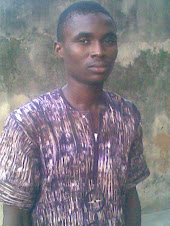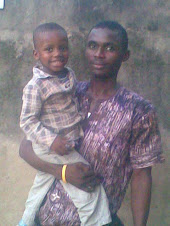By
Otaibayomi Samuel Abayomi
A simmering undercurrent of disaffection is brewing within the Yoruba polity, blown open and exacerbated by the assassination of Chief Ajibola Idowu Ige. This undercurrent was there when Ige was alive. This article is an attempt to offer some suggestions as to how it can be resolved so we [the Yoruba] do not end up in mutual recrimination and socio-political cannibalism. We owe it a duty to our common and much cherished patrimony, the Nigerian commonwealth and the world at large to cultivate, promote and sustain a culture of decent and civil contention and disputation in our politics. Each nationality that make up the Nigerian federation must have peace in its own domain before it can contribute meaningfully in resolving the contradictions of the federal republic. It behooves us all as stakeholders to do all we can to promote peace and concord within our nationalities and the Nigerian family at large.
The choice of the topic is deliberate because the problem centers around the role and place of the holder of the title of the ‘Asiwaju of the Yoruba’ in political partisanship in ‘peace time’
Before
The Yoruba were in disarray, their military governor murdered, their kinsman Babafemi Ogundipe, a Brigadier who ordinarily ought to take command of the army on the assassination of Ironsi, fled when confronted with the murderous reality of the mutineers in
Once their British mentors pointed out to them the folly and bankruptcy of this position, [land-locked and the most economically backward region of
To buttress this point, the Yoruba have only come up with this title when there is a need for a Leader to speak for and articulate the political line of the Yoruba nation [like in 1966] or when they are under siege like during the reign of terror of the late happily departed depraved moron. Hence Adekunle Ajasin filled that role and after his passing, the Apamaku Aderibigbe Adesanya was also so elected. All the three men who have held this title earned it strictly on personal merit and in recognition of service to and defence of the cause of the Yoruba nation. Obafemi Awolowo himself was only fifty-seven years old when the title was conferred on him and there were people who were far older than him at the assembly. So, age which is revered among the Yoruba is not necessarily a major criterion. The integrity, extra-ordinary courage and personal merit of the holder of this title is evident to all regardless of political partisanship. Here is Adeyinka Adebayo, former military governor of Western region and a leader of the NPN in the second republic, [Vanguard Dec 19th, 201], on Awolowo, ’we lost our bearings since Chief Obafemi Awolowo left western region premiership to contest the seat at the federal house of representatives……if Chief Awolowo had stayed as premier of western region…..the Yoruba would not have been relegated to the background in the country’ Chief Ayotunde Rosiji, the General-secretary of the Action Group, [later deputy leader to Chief S.L Akintola in the Nigerian National Democratic party [NNDP] [ who was removed from his position at the unforgettable Jos congress of the party in 1962 that precipitated the crisis that eventually led to the January 1966 coup d’etat, expressed the same views about Awolowo as contained in his biography by Nina Mba [1992], ‘Rosiji regrets that the AG did not win more seats in the 1959 elections so that Awolowo might have been made prime minister. Of all the leaders he was the most qualified by education, by intellect, and by organizational ability.
Had he been prime minister and Azikiwe governor-general, Rosiji feels they would have made an unbeatable team for Azikiwe’s charisma and humaness would have have complemented Awolowo’s single-minded dedication and thoroughness’ OsuOlale Akinjide, easily one of the most inveterate and implacable critic and political opponent of Awolowo told Nigerians in [ThisDay, 2001] that his regret in Nigerian politics was that he was not able to be ‘in the same political party with Chief Obafemi Awolowo’. Adekunle Ajasin was already in his eighties when he took on Sani Abacha and remained unbought and unbowed till the end of his life. Aderibigbe Adesanya earned the sobriquet ‘The Apamaku’ [the one who refused to die] when he faced down the murderous goons of Sani Abacha as testified to by the leader of the assasination squad himself Sergeant Barnabas Jabila Msheila [a.k.a. Sergeant Rogers] on the street of Lagos, and by the grace of God, walked out of his bullet- riddled car unscathed. Sergeant Msheila was led to Adesanya’s home by Lateef Sofolahan, the Abacha spy and informant who was masquerading as an assistant to Kudirat Abiola and was in her employ. We have gone this length to explain the extra-ordinary circumstances that threw up this title and pedigree of its holders.
Indeed, one cannot but wince in disappointment on reading the works of some Nigerian commentators and writers who characterize the politics of the Yoruba as inward-looking or ‘tribal’. These writers betray a gross ignorance of Nigerian political history. What Awolowo and his followers have reaped from 1979 till date, are the fruits of their revolution of 1952-59; when children in western region [comprising today of Oyo,Ondo,Osun, Ogun, Ekiti, Edo, Delta, including much of what is Lagos state today] had free medical service from birth to the age of eighteen and free primary education. It was the beneficiaries and products of these schemes in their millions and their children now, whose lives had been transformed by the meticulous planning and social engineering of Awolowo’s government that made him the paramount leader of the Yoruba, partisan politics or not.. For their parents though, Awolowo had to prove himself and this he did by dint of hard work and unflinching commitment to the welfare of the people of western region when he was the premier. Awo did not believe that you come into public service to ‘come and eat’; for him, a political party is made of ideological compatibles who share same ideas about the role and place of government in people’s life, have come up with a political platform about what they intend to do with the power they are seeking through the vote of the people. Hence, they have a covenant with people who had voted for them and have to deliver what had been promised during electioneering campaign. Thus, he would say that one should not enjoy in government what one could not provide for oneself in private life, so you would not develop a sit-tight syndrome. He also believed in the supremacy of the party where all ideas are fiercely debated before a decision is reached. As premier, his party faced fierce and unrelenting opposition in critical divisions of western region; Ijesha,
The Action Group was the government in power but every vote was contested and there was no place for complacency. The National Council of Nigerian Citizens [NCNC] was strong in western region and infact won the election of 1956. In 1952, Awolowo as leader of government business and later as premier faced a hostile colonial government that viewed him with suspicion and his party’s program with scorn and derision; worse, he faced a skeptical people to whom he had to prove himself and earn their trust. Untested, this was the advent of self-government in
However, as has been explained above, this is a title of unknown exigencies because once partisan politics resumes, the profile and role of the holder is muted. Nonetheless, one thing must be borne in mind always; partisan politics or not, the Yoruba, discerning and fastidious as ever, are eminently adept at differentiating and separating the chaff from the substance. They know who is in politics in search of lucre, position and patronage, personal aggrandizement, hence not every politician can even remotely be considered let alone be chosen to hold this title .For the foreseeable future, as far as the eyes can see, the only known feature of the Nigerian federation is the unknown. Hence this title and its utility under the extant dispensation, cannot be assailed. It is to the eternal credit of Obafemi Awolowo, that the benchmark by which any holder of the title would be assessed was established by him.








Nice
ReplyDelete